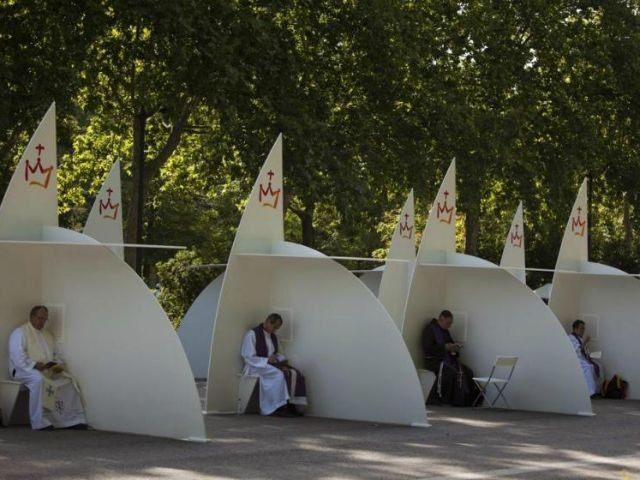Like a Catholic Uncle Sam, Pope Francis is telling priests from around the world, “I want YOU to hear confessions!” The Vatican has begun wholesale recruitment of priests to devote themselves to preaching forgiveness and hearing the confessions of repentant faithful during the upcoming Jubilee Year of Mercy.
In the spirit of the patron saint of Catholic priests, Saint Jean Marie Vianney—who used to spend up to 18 hours a day hearing confessions in his little parish of Ars, France—the Pope is looking for a few good priests to assist him during the Jubilee year as “missionaries of mercy” for the millions of faithful who will wish to avail themselves of the Sacrament of Reconciliation during the year.
The Vatican has set up a special website where priests can apply online to be ambassadors of the mercy of God, provided they have the support of their bishop or religious superior.
Pope Francis will welcome and officially commission the participating priests during a special ceremony in Saint Peter’s Basilica on Ash Wednesday, to be celebrated next year on February 10.
The Vatican website lists a series of six qualities that candidates should possess to be “missionaries of mercy.” Among other things, applying priests should be “a living sign of the Father’s welcome,” “inspiring preachers of Mercy,” “heralds of the joy of forgiveness,” and “welcoming, loving, and compassionate Confessors.”
In coordination with local bishops, the missionaries will preach and administer the sacrament of reconciliation during special Year of Mercy events to be held throughout the world.
Pope Francis has said he will give the “missionaries of mercy” special authority “to pardon even those sins reserved to the Holy See” during the extraordinary Year of Mercy, which will begin on December 8.
Bishop Juan Ignacio Arrieta, secretary of the Pontifical Council for Legislative Texts, said the reference to “reserved” sins refers to actions that can bring with them automatic excommunication, such as apostasy, heresy, and schism; profanation of the Eucharist; physical violence against the Pope; attempted ordination of women; violating the secrecy of the sacrament of confession; or procuring, performing, or actively assisting or pressuring a woman into having an abortion.
If the person is repentant, Arrieta said, the missionaries will be able to lift the excommunication and grant absolution in cases that usually require the intervention of the local bishop or the Apostolic Penitentiary, a Vatican court.
Follow Thomas D. Williams on Twitter @tdwilliamsrome.

COMMENTS
Please let us know if you're having issues with commenting.